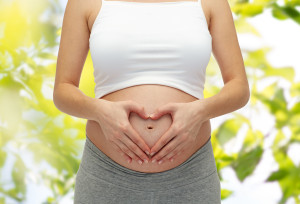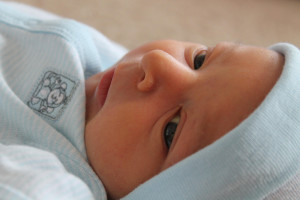 Many pregnant women are given conflicting advice about drinking during pregnancy – plenty of people maintain that “just a little bit” here and there will not harm the baby while others staunchly maintain that drinking while pregnant is akin to child abuse.
Many pregnant women are given conflicting advice about drinking during pregnancy – plenty of people maintain that “just a little bit” here and there will not harm the baby while others staunchly maintain that drinking while pregnant is akin to child abuse.
It can be confusing for mothers-to-be: who should you listen to? According to the Centers for Disease Control and Prevention (CDC), there is no known safe amount of alcohol to drink while pregnant. Additionally, there is no safe time during pregnancy in which drinking alcohol is not harmful and there is no safe type of alcohol (such as wine coolers or wine).
The CDC urges all pregnant women to avoid drinking any alcohol whatsoever during pregnancy and states that women who are attempting to become pregnant or are sexually active without proper birth control avoid alcohol – in the United States, half of all pregnancies are unplanned [1].
Alcohol is risky and dangerous during pregnancy because when a woman ingests alcohol, so does her unborn child. When alcohol circulates through the maternal bloodstream, it easily passes through the placenta and into the developing baby through the umbilical cord.
A woman’s mature body is able to properly manage the alcohol in her blood as her liver works to breakdown and rid her body of alcohol in a safe manner. Unfortunately, a developing fetus cannot rid its developing body of alcohol – the liver of a developing baby is far too small to properly break down the alcohol, and the alcohol continues to circulate throughout the fetus’ body.
Alcohol consumption during pregnancy can cause a number of dire consequences to the fetus, including:
- Miscarriage – loss of the developing fetus that occurs at less than twenty weeks gestation
- Stillbirth – intrauterine death and subsequent delivery of a developing infant occurring between the twentieth week of pregnancy up to birth
- Fetal alcohol spectrum disorders (FADs) – an array of permanent, often debilitating disorders that cause a range of negative consequences for the baby
 Fetal alcohol spectrum disorders (FADs), previously known as fetal alcohol syndrome (FAS), are a group of different conditions that can occur in a person whose mother drank while she was pregnant.
Fetal alcohol spectrum disorders (FADs), previously known as fetal alcohol syndrome (FAS), are a group of different conditions that can occur in a person whose mother drank while she was pregnant.
There are a wide assortment of conditions associated with FADs that range from mild severity to extremely debilitating. The symptoms a person who has FADs can experience can include:
- Abnormal facial features
- Smaller head size
- Poor ability to suck and feed as a baby
- Sleep problems as an infant
- Speech and language delays
- Low IQ and/or intellectual disability
- Vision or hearing problems
- Birth defects – heart, kidney, and/or bones
- Shorter-than-average height
- Difficulties paying attention
- Poor reasoning and judgment skills
- Low body weight
- Poor memory
- Poor coordination
- Scholastic and educational difficulties – most notably with math comprehension
- Hyperactive behaviors
- Learning disabilities
In addition to the numerous risks for the development of FADs, there are other risks for alcohol use in pregnancy. Alcohol use during pregnancy can lead to a number of quite serious consequences and risks for the baby; many of which may persist long after the child grows. Additional risks and consequences for alcohol use during pregnancy may include:
- Vision or hearing problems in the child
- Preterm labor and birth
- Low birthweight
- Persistent intellectual disabilities
- Difficulties with learning
- Behavioral problems
- Birth defects, including those that affect the brain, heart, and other vital organs
- Sleeping and feeding difficulties
- Speech and language delays
While there is no safe dose for alcohol consumption during pregnancy, the good news is that the risks of alcohol use in pregnancy can be easily avoided. Women who are pregnant, planning to get pregnant, or using ineffective (or no) birth control should stay away from alcohol to reduce the risks to the developing fetus.
 This includes avoiding wine, wine coolers, beer, and hard liquor as there is no proven safe amount or type of alcohol appropriate for pregnancy. While some women find out they are pregnant after they have had an occasional drink, chances are low that it will harm the developing baby.
This includes avoiding wine, wine coolers, beer, and hard liquor as there is no proven safe amount or type of alcohol appropriate for pregnancy. While some women find out they are pregnant after they have had an occasional drink, chances are low that it will harm the developing baby.
However, it is vital to stop drinking as soon as pregnancy is confirmed. In addition, proper prenatal care is one of the most important things a mother-to-be can do for her new baby.
An obstetrician can easily answer any questions, perform tests, and help alleviate any concerns the mother-to-be may have. It is of the utmost importance that women who are pregnant steer clear from alcohol as the risks of alcohol use during pregnancy far outweigh any benefits of alcohol consumption.
About the Author: “Alcohol and Pregnancy: What are the Risks?” was written by North Tampa Behavioral Health clinical team member Lauren Hardy, M.A. Lauren has a master’s degree in counseling psychology and several years of experience in the treatment field as a research analyst at Vanderbilt University.
Site Description: North Tampa Behavioral Health provides inpatient, IOP & PHP treatment for adults & seniors suffering from addiction, depression, bipolar disorder, memory disorders & co-occurring issues.
References:
[1]: http://www.cdc.gov/ncbddd/fasd/alcohol-use.html
Last Updated & Reviewed By: Jacquelyn Ekern, MS, LPC on April 17, 2014
Published on AddictionHope.com, Helpful Resources for Alcohol Addiction
